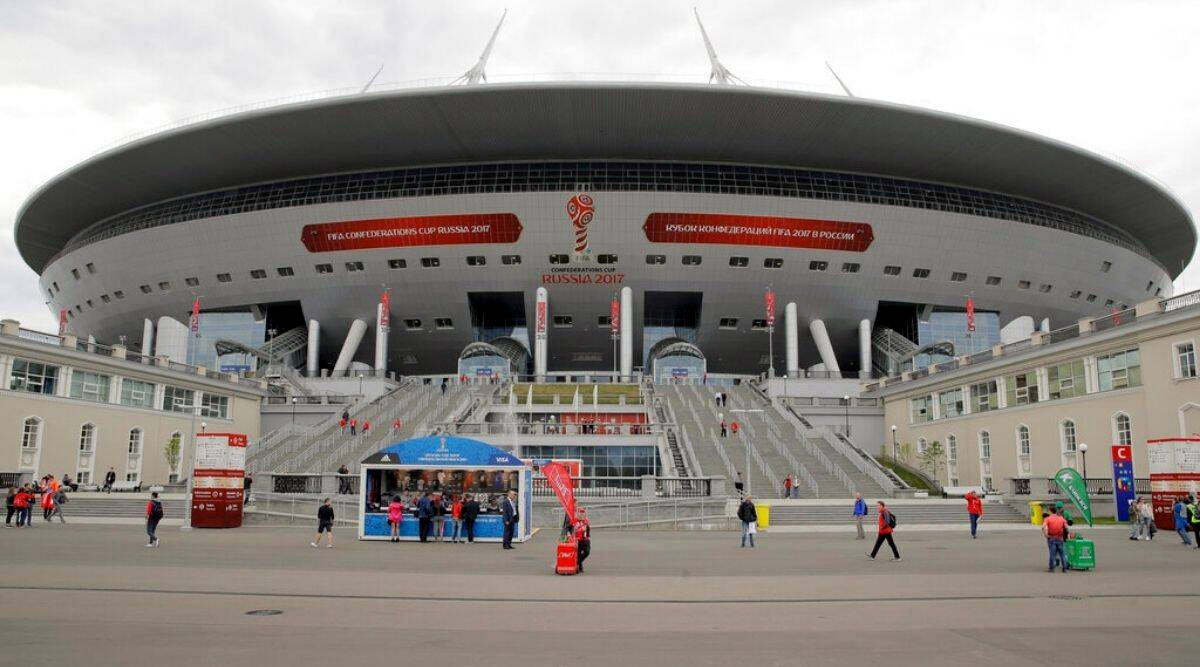LONDON , Feb 22: The British Government led calls for the Champions League final to be taken out of Russia on Tuesday to punish its deepening intervention in Ukraine, prompting UEFA to say it would reconsider hosting rights.
British Prime Minister Boris Johnson highlighted concerns about the showpiece men’s game being played in St. Petersburg on May 28 as he urged Russian President Vladimir Putin not to conduct a full invasion of Ukraine.
Russia sparked an outcry by announcing on Monday that its recognition of independence for areas in eastern Ukraine extended to territory currently held by Ukrainian forces.
“It’s absolutely vital in this critical moment that President Putin understands that what he is doing is going to be a disaster for Russia,” Johnson told the House of Commons.
“He is going to end up with … A Russia that is more isolated, a Russia that has pariah status, no chance of holding football tournaments in a Russia that invades sovereign countries.”
In response, European football’s governing body for the first time acknowledged a risk to Russia staging the event.
“UEFA is constantly and closely monitoring the situation,” the Champions League organizer said in a statement, “and any decision would be made in due course if necessary.”
A person with knowledge of the situation said the Ukraine crisis was discussed by top-level officials at UEFA on Tuesday, including its president, Aleksander Ceferin. The person spoke on condition of anonymity to discuss talks assessing the geopolitical situation.
With four representatives in the round of 16 of the Champions League, England has the most teams remaining in the competition. Culture Secretary Nadine Dorries, who holds the sports brief in Johnson’s cabinet, said she would discuss “serious concerns” about Russia staging the final with UEFA.
“We won’t allow President Putin to exploit events on the world stage to legitimize his illegal invasion of Ukraine,” Dorries said.
UEFA has had to move the Champions League final in the last two seasons, both times from Turkey to Portugal due to the pandemic. A full-scale Russian invasion of Ukraine would significantly change UEFA’s belief the final could still be played in St. Petersburg.
FIFA council member Alexey Sorokin, who also leads the organizing committee for the final, said no discussions with UEFA had taken place about St. Petersburg losing the hosting rights.
“We are preparing for the final according to plan,” Sorokin told the TASS news agency.
“We expect more than 50,000 foreign fans to arrive.”
Russian officials haven’t yet acknowledged any troop deployments to the rebel east, but Vladislav Brig, a member of the separatist local council in Donetsk, told reporters that the Russian troops already had moved in, taking up positions in the region’s north and west.
UEFA has been keeping Ukrainian and Russian teams separated in draws to prevent them from playing each other since Moscow annexed the Crimea peninsula of Ukraine and backed separatist insurgents in eastern Ukraine.
Russia’s state gas company, Gazprom, has been a sponsor of the Champions League since 2012 — the same year Ukraine co-hosted the European Championship with Russia. But the company’s logos were removed from a UEFA-branded “Champions Festival” on Kyiv’s main street when the Ukrainian capital staged the 2018 Champions League final between Real Madrid and Liverpool.
Russia is already serving a punishment from the World Anti-Doping Agency for state-sponsored cheating that prevents it from hosting international sports events through December. But UEFA was not bound by the ruling as a European governing body which meant St. Petersburg has already hosted four games at the European Championship last year.
Separately on Tuesday, the Polish football federation asked FIFA to urgently clarify whether its World Cup playoff game against Russia on March 24 will be played in Moscow as scheduled. The winner of that game will face Sweden or the Czech Republic for a place at the World Cup in Qatar.
If Russia qualifies for the World Cup in Qatar in November the team name must be changed to something neutral that likely would not include the word “Russia.” The Russian team at the past two Olympics has been called ROC — Russian Olympic Committee. (AP)
Trending Now
E-Paper


